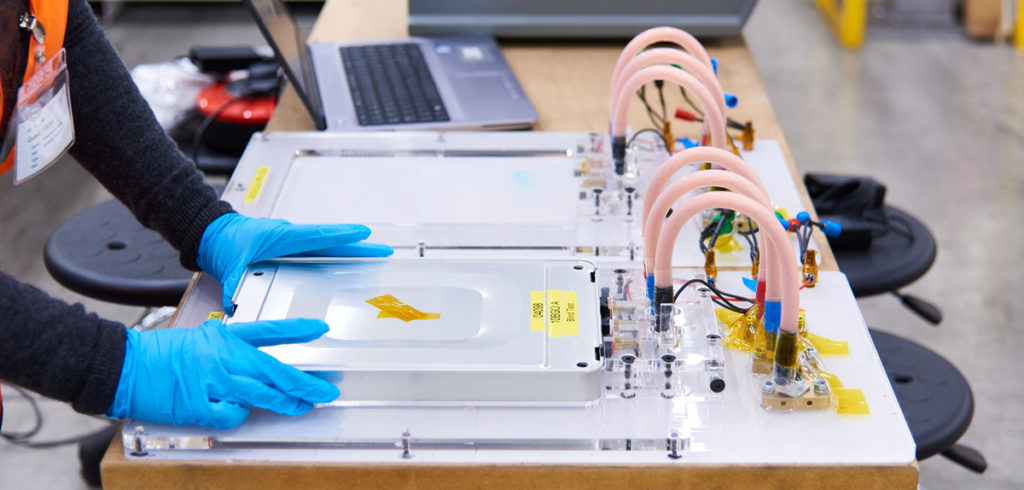Experts at Nissan, along with researchers from WMG at the University of Warwick, Ametek and Element Energy have developed a new grading system for end-of-life Li-ion batteries.
Part-funded by the Business, Energy and Industrial Strategy, the partners have worked together on the project badged UK Energy Storage Laboratory to refine the method, which has the potential to replace the traditional grading system, which is long and expensive.
The new process developed by experts at WMG identifies the end-of-life battery on a pack level as either suitable for use as spare parts, suitable for ‘second life’, or suitable for recycling of materials. The team developed ways of grading modules in as little as three minutes – a process that previously took over three hours.
Nissan initiated the program to explore potentially faster methods of grading used batteries from the Leaf with the aim of demonstrating 1MWh of energy storage by the end of 2019. The methodology developed was successfully transferred to a pilot second-life facility where 1MWh of second-life energy storage was achieved.
Graded second-life battery packs can be used as energy storage in numerous ways. Furthermore, the packs can be used for storage enabling increased intermittent renewable energy sources on the grid, without putting security of supply at risk.
Ametek developed specialist equipment, and worked with WMG to embed the algorithms developed into a robust and industrialized machine that can be used by Nissan and other companies to grade second-life batteries.
Andrew Williams, Ametek’s advanced measurement technology business unit manager, commented, “The algorithm was developed with assistance from Ametek EIS analyzers. We are currently implementing the algorithm in our new family of Solartron analytical battery analyzer products, including our flagship SI-9300R model, which we expect will reduce market barriers for second-life applications.”
The new process is now being trialed for grading of battery modules at the second-life pilot facility. Through these two processes, Nissan hopes to be able to reuse the vast majority of packs currently assembled in EVs in Europe.
Prof. David Greenwood from WMG, University of Warwick, said, “Automotive batteries deliver some great environmental benefits, but they consume a lot of resources in doing so. Opening up a second life for batteries improves both the environmental and the economic value we draw from those resources before they need recycling. I’m delighted that by working with the partners on this project, we’ve been able to make it much easier to access those second-life applications.
Business and climate change minister, Lord Ian Duncan, said, “It’s great to hear that the University of Warwick and Nissan are collaborating in pursuit of a greener, cleaner future. Reusing the batteries from electric cars could provide a valuable contribution to the UK’s green revolution – helping us lead more efficient and smarter lives as we end our contribution to climate change by 2050.
“We’ve part-funded this project to help give manufacturers more options than recycling – meaning a battery that helped a driver get from A to B could then be used to help store energy used to power a home.”


